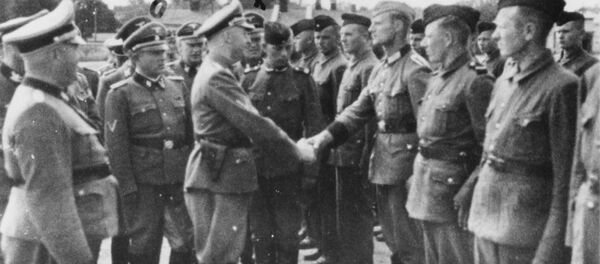Kristian Rouz — Argentina's former president Cristina Fernández de Kirchner, now a prominent centre-left opposition senator, says she won't challenge President Mauriio Macri in this year's elections.
READ MORE: Argentine Economy in Free Fall Ahead of Elections Despite IMF Aid — Reports
Her announcement sparked rife speculation among investors of what to expect of the race and Argentina's economic policies as embattled Macri is struggling to overcome the on-going recession.
In a statement Saturday, Kirchner said she would run to become Argentina's Vice President this year as a running mate to her former head of the cabinet, Alberto Fernández, who is running for president. The two are not related.
"I was never that interested in political office, nor was it my main motivation," Fernández said in a video address on social media.
Kirchner's announcement has made Argentina's political landscape more complicated in the months leading up to the election, which is slated for 27 October. Previously, most observers expected her to run for president and beat Macri — as her approval ratings have been steadily above Macri's since last year's currency crisis and a subsequent recession in the country.
The Fund is quite unpopular in Argentina, but some economists see no alternative to its programmes — unless Argentina wants to repeat the Peronist economic policies most recently championed by none other than Kirschner herself.
"It is not clear that there are alternatives to austerity and the IMF program for Argentina, and this move may confirm that the main moderate Peronist candidates see it that way too," Hasnain Malik of capital markets advisory Tellimer in Dubai said.
It's also unclear whether the centre-left Citizens' Union — led by the Fernández-Fernández duo — will gain more popularity, or if it'll dip in polls.
READ MORE: Argentine Pilots Launch Strike, Oppose Hiring of Foreigners by National Airlines
The general perception of Alberto Fernández is quite favourable in Argentina, although he's somewhat of a less-recognisable figure than his female partner. Fernández is seen as less decisive and radical than Kirchner — and some analysts say he could actually attract more votes among the undecided moderate audience, who would otherwise support Macri — despite all his unpopular moves.
The lion's share of that debt was borrowed in US dollars — and when US interest rates went up, the Argentine peso hit rock bottom. Kirchner has fiercely criticised Macri for what she believes were his irresponsible policies.
She is also recognised in Argentina as the President who put the nation on the path of sustainable economic growth in the late 2000s-early 2010s, although allegations of corruption marred her career.
"The message seems to be good regarding Kirchner's decision, but the problems remain and the economy is ineffective," Marcin Lipka of Warsaw-based brokerage Cinkciarz.pl said.
The majority of Argentines, regardless of their political views, see Kirchner as the nation's main opposition leader. Even if they don't necessarily approve of her Peronist or centre-left agenda, many voters could still support her in the upcoming election — mainly, due to the fresh memory of the IMF's disastrous handling of the Argentine crisis back in 2001-02.


